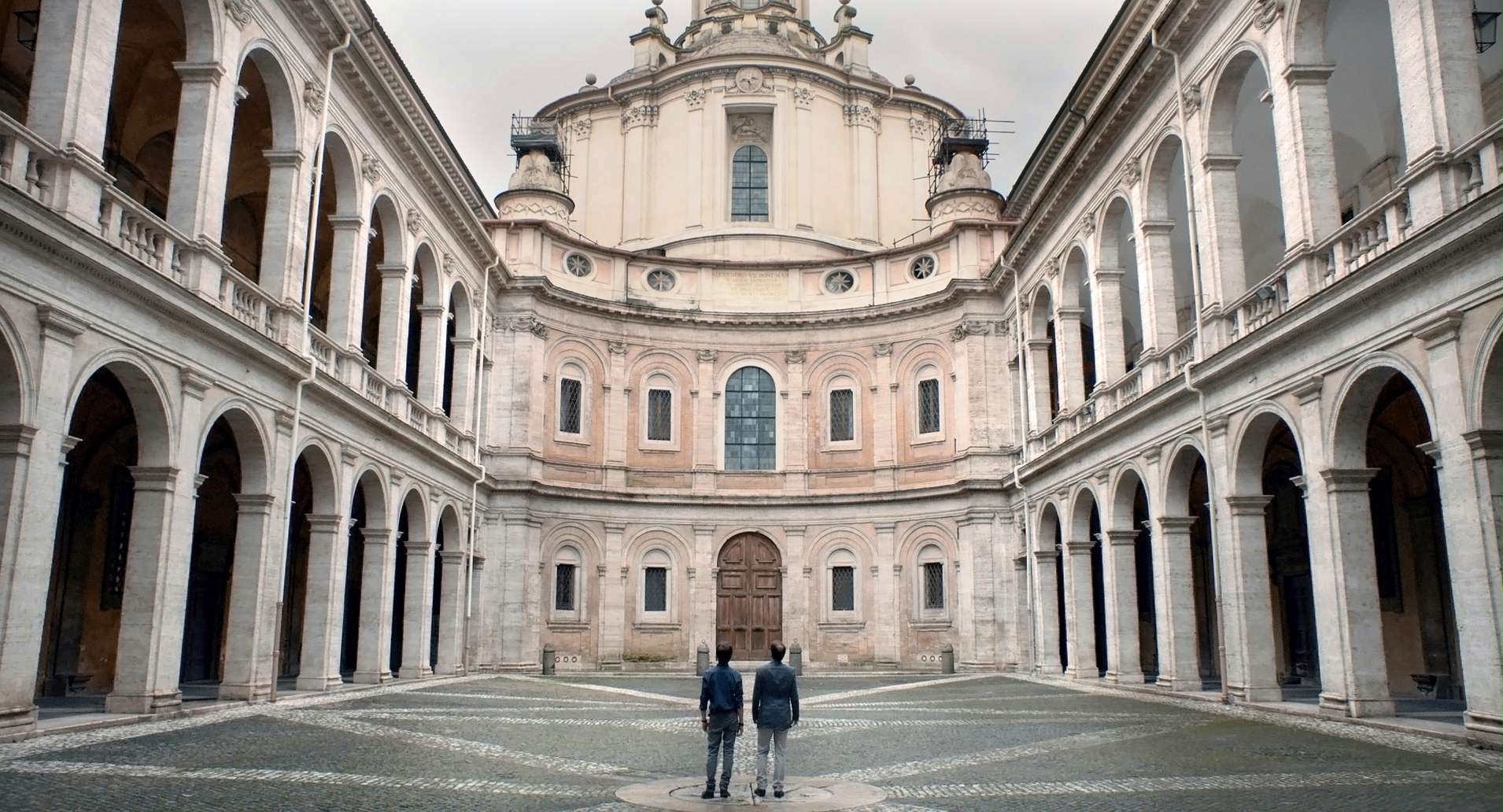By providing your information, you agree to our Terms of Use and our Privacy Policy. We use vendors that may also process your information to help provide our services. This site is protected by reCAPTCHA Enterprise and the Google Privacy Policy and Terms of Service apply.
Locarno Review: How Do You Turn Architecture Into a Love Story? On Eugene Green’s Brilliant ‘The Sapience’
Eric Kohn

The premise of the “The Sapience” (“La Sapienza“) could easily provide fodder for a clichéd indie drama: an estranged couple travels to the countryside in a desperate attempt to raise their weary spirits, bonds with a pair of troubled teens and by helping them work through their problems, finds a renewed sense of hope. Gag.
But in the hands of French-American filmmaker Eugéne Green (“The Portuguese Nun”), whose movies blend understated storytelling with literary themes, “The Sapience” is anything but familiar. Instead, the writer-director crafts a work that’s both weighted with scholarly inquiry and an undercurrent of poignancy unlike anything else.
The title refers to a definition of wisdom stretching back many centuries and applied in the works of baroque 17th century Roman architect Francesco Borromini, whose work lies at the center of Green’s movie with as much depth as its contemporary characters. These include architect Alexandre (Fabrizio Rongione) draws inspiration from Borromini’s work and harbors a longtime desire to write a book on his hero. His wife, Alienor (Christelle Prot Landman), harbors her own frustrations with her daily profession as a behavior specialist. When Alexandre announces his intentions of traveling away from the daily frustrations of his job for a trip to Turin and Rome, hoping to rejuvenate his book project, Alienor decides to tag along.
Green establishes a peculiar atmosphere with this early exchange, as the two straight-faced actors gaze in separate directions and discuss their plans in a monotonous delivery that’s pitched halfway between deadpan comedy and eerie dislocation. The tone develops throughout the movie, with the hollow quality that has crept into the troubled couple’s lives being replaced with the new meaning they find over the course of their trip.
 In the idyllic town of Stresa, a quaint seaside community, the pair encounter the young siblings Goffredo (Ludovico Succio) and Lavinia (Arianna Nastro). When Alienor discovers that the enterprising high schooler Goffredo harbors aspirations of being an architect himself, she insists he travel along with her husband as he visits various Borromini structures for his book.
In the idyllic town of Stresa, a quaint seaside community, the pair encounter the young siblings Goffredo (Ludovico Succio) and Lavinia (Arianna Nastro). When Alienor discovers that the enterprising high schooler Goffredo harbors aspirations of being an architect himself, she insists he travel along with her husband as he visits various Borromini structures for his book.
The buttoned-up Alexandre resists the company, but finds himself trapped, and falls into prolonged conversations with his unintentional disciple about the theories behind Borromi’s work — which eventually allows him to uncover the youthful enthusiasm long absent from his life. Meanwhile, Alienor takes the frail Lavinia under her wing for reasons that gradually become clear as her past with her husband is further revealed. But the older woman also spends time on her own contemplating her open-ended future, leading to a wonderfully poignant revelation when the couple reconnect in the closing act.
 Like “The Portuguese Nun,” in which the streets of Lisbon and 17th century writings were paired with a modern day story, elements of existing creativity from past centuries are used to eloquent and mysterious effect. Much as Jem Cohen’s “Museum Hours” used the halls of Vienna’s Kunsthistorisches Museum to explore the redemptive possibilities of art, Borromi’s magisterial structures take on a cathartic power. But the dialogue-heavy plot suggests Eric Rohmer. By searching for “what lies beyond beauty,” Alexandre unearths the compassion that has been dormant in his life for so long. The movie illustrates his evolving thought process through equally vivid words and images.
Like “The Portuguese Nun,” in which the streets of Lisbon and 17th century writings were paired with a modern day story, elements of existing creativity from past centuries are used to eloquent and mysterious effect. Much as Jem Cohen’s “Museum Hours” used the halls of Vienna’s Kunsthistorisches Museum to explore the redemptive possibilities of art, Borromi’s magisterial structures take on a cathartic power. But the dialogue-heavy plot suggests Eric Rohmer. By searching for “what lies beyond beauty,” Alexandre unearths the compassion that has been dormant in his life for so long. The movie illustrates his evolving thought process through equally vivid words and images.
Green oscillates between a subdued comedic element — epitomized by his leading man’s awkward relationship to the world — and the intellectual curiosity that’s the ultimate source to his problems. As a result, the movie’s muted, slow-burn narrative style is initially off-putting, but reaches a rewarding climax through its unique synthesis of complex dialogue and lush visuals. The final experience is life-affirming not in spite of the cerebral approach but because of it.
Grade: A-
“The Sapience” premiered at the Locarno Film Festival this week. It does not currently have U.S. distribution.
By providing your information, you agree to our Terms of Use and our Privacy Policy. We use vendors that may also process your information to help provide our services. This site is protected by reCAPTCHA Enterprise and the Google Privacy Policy and Terms of Service apply.















